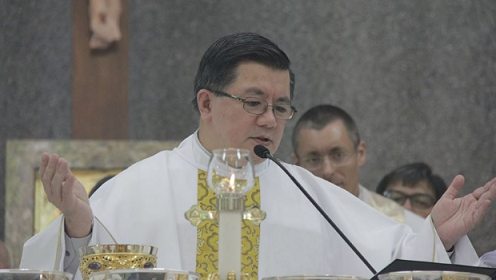14th Sunday in Ordinary Times
Isaiah 66:10-14; Psalm 65:1-7,16,20; Galatians 6:14-18; Gospel of Luke 10:1-20
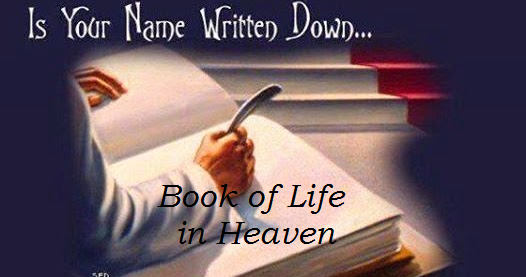
Preached by Msgr Philip Heng, SJ at Cathedral of Good Shepherd, Singapore on 7 July 2019
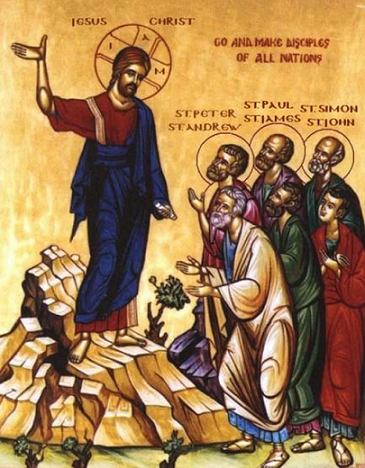 In today’s Gospel that we just heard proclaimed, Jesus commissions His seventy-two disciples to go out ahead of Him to bring His “Peace” to all peoples and proclaim that the “Kingdom of God is near”, or that “God will soon take over.” Jesus then instructs them as He instructed His Twelve Apostles, to serve selflessly and in simplicity and humility, as He has shown them through His Life.
In today’s Gospel that we just heard proclaimed, Jesus commissions His seventy-two disciples to go out ahead of Him to bring His “Peace” to all peoples and proclaim that the “Kingdom of God is near”, or that “God will soon take over.” Jesus then instructs them as He instructed His Twelve Apostles, to serve selflessly and in simplicity and humility, as He has shown them through His Life.
We then hear that the disciples returned rejoicing and announces to Jesus that their mission was a great success, saying, “Lord, even the devils submit to us when we use your Name.” To this Jesus response by proclaiming to them, “You do not rejoice that the spirits submit to you; rejoice rather that your names are written in heaven.”
In other words, my brothers and sisters in Christ, Jesus is saying to His disciples that while they have great joy in the obedience of God’s Will and serving as Jesus has instructed them, there is greater joy that come from the reality of our deep sense of our relationship with God and the certitude that our final destiny is to live with God for all eternity in heaven. In this, Jesus then points out the urgency that the “harvest is rich, but the labourers are few,” and that they are to pray for more labourers.
My sisters and brothers in Christ, the Gospel message today is primarily proclaiming to us that our greatest joy in our hearts should be the certitude that Jesus offers a promise of eternal life after we die; a life that enjoys God’s Presence and Glory to the full in heaven. While it is understandable that those who do not have the faith, cannot appreciate this truth of Jesus, what is really sad is that this Gospel Truth of Jesus many of our believing Catholics do not seem to be attracted to this Truth.
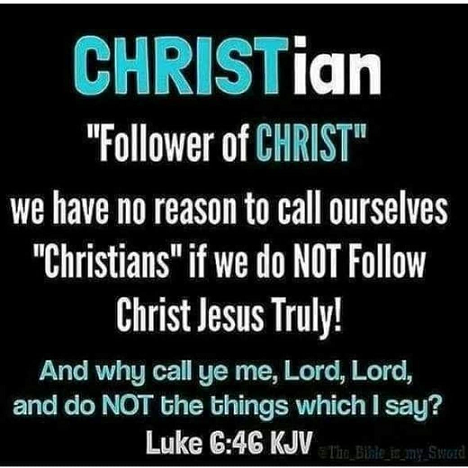 While we are aware that there are many push and pull factors that lead many Catholics to leave the Church and to stop practicing the faith; we also know that many who come for Mass, are also unfortunately not able to integrate their faith with their daily living, and as such live the faith in a lukewarm and disinterested manner, where prayer becomes secondary, Mass attendance becomes a reluctant obligation, and living the Christ-like life is remotely connected to the quality of one’s daily living. Nevertheless, we thank God that there are still many Catholics who remain zealously faithful to the faith, and that are Churches are not empty museums.
While we are aware that there are many push and pull factors that lead many Catholics to leave the Church and to stop practicing the faith; we also know that many who come for Mass, are also unfortunately not able to integrate their faith with their daily living, and as such live the faith in a lukewarm and disinterested manner, where prayer becomes secondary, Mass attendance becomes a reluctant obligation, and living the Christ-like life is remotely connected to the quality of one’s daily living. Nevertheless, we thank God that there are still many Catholics who remain zealously faithful to the faith, and that are Churches are not empty museums.
My brothers and sisters, to pierce the truth of our resistances, I believe the testimony of the lifestyle, thinking and attitude of Jennifer Fulwiler, a bestselling author, a mother of six children, and who was an atheist before she converted to Catholicism can help us reflect on our own lives, as we reflect on her life of conversion.
Jennifer shares, “As an atheist this is how I lived. I acknowledged the truth that life was meaningless, and yet I kept acting as if my own life had meaning; as if all the hope, love and joy I had experienced was something real. I worked too much. I drank too much. I was emotionally fragile. Many of my relationships with other people were toxic. I wrapped myself in a cocoon of distractions,” trying to pretend that I did not know the deeper Truth of the meaning of life.
A year after I graduated from college, I met a guy at work named Joe. People who knew him said he was one of the smartest person they’d ever met with degrees from Yale, Columbia and Stanford universities. So when we began dating, I was thrilled. Our life together turned out to be even better than I could have imagined: We travelled the world on whims, ate at the finest restaurants, flew first class, and threw epic parties on the roof of his loft downtown. On top of that, both of our careers were taking off, so our future was going to be one that was filled with more money and more success; a great life that we looked forward to; a life that my family would boasts of and my friends would envy.
Indeed, we were the perfect couple that the young would dream of and the old wished they had. The only thing we didn’t see the same way was the issue of religion. Joe and I married in a theater in 2003, reciting vows we wrote ourselves, with me wearing a dark purple dress.
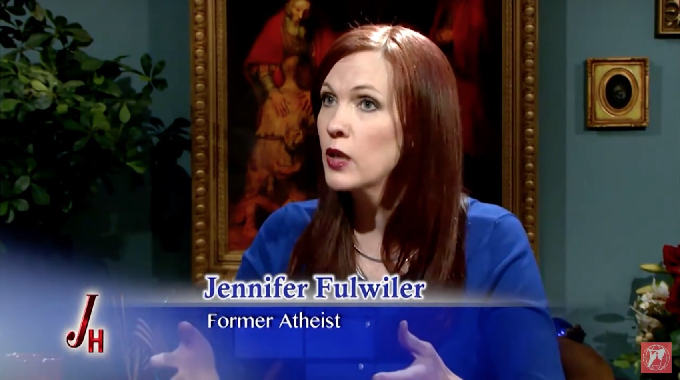
Then I discovered I was pregnant, and everything changed. One morning, as I looked at my baby in the pre-dawn light that filtered in through the window, I felt something new within me. It was something that was not despair, some unfamiliar yet welcome feeling. I peeled back the layers to find that it was doubt: doubt of my purely materialist worldview about life; a doubt of the truth I had (been accustomed) to believe since childhood that there is nothing beyond and transcendent about the human life.
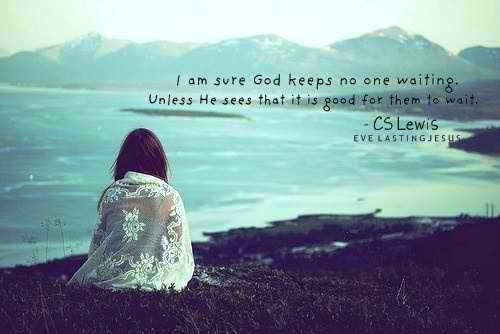 A few months later, I stumbled across a Christian book, written by a former atheist and why he became a Catholic. Then, I bought another Christian book, this one called Mere Christianity by C.S. Lewis. And after reading from the great Christian thinkers like St Augustine and St Thomas Aquinas. I began to think that this religion is not opposed to reason at all — in fact, some of the most intelligent, reasonable people in history were Christians. I finally caved in and bought a Bible and Joe encouraged me to read the New Testament.
A few months later, I stumbled across a Christian book, written by a former atheist and why he became a Catholic. Then, I bought another Christian book, this one called Mere Christianity by C.S. Lewis. And after reading from the great Christian thinkers like St Augustine and St Thomas Aquinas. I began to think that this religion is not opposed to reason at all — in fact, some of the most intelligent, reasonable people in history were Christians. I finally caved in and bought a Bible and Joe encouraged me to read the New Testament.
Jesus founded just one Church before he left the earth, and that He empowered it with supernatural power so that it would accurately articulate the truth about what is good — and therefore about what is God — for all times and places. As if that were not crazy enough, I realized that He was talking about the Catholic Church!
I wasn’t sure what to make of all this Catholic stuff, and still vehemently disagreed with the Church on some of its crazier ideas, like its opposition to abortion and contraception. But I had to admit that the more I read about Catholic theology, the more everything about life and its meaning made sense.
Even as I was being very much drawn to Catholicism, and her teachings, I never seem to experience the Jesus that the Catholic Church talks about? One day, I happened to come across a quote from C.S. Lewis in which he pointed out: [God] shows much more of Himself to some people than to others — not because He has favourites, but because it is impossible for Him to show Himself to a person whose whole mind and character are in the wrong condition. Just as sunlight, though it has no favourites, cannot be reflected in a dusty mirror as clearly as in a clean one.
At that very moment I realized that I had since my childhood been walking around talking trash, watching TV shows that portrayed all types of nastiness, indulging in selfish behaviour and yet wondering why I couldn’t feel the presence of the source of all goodness. I realized that, if I were serious about figuring out if God exists or not, it could not be an entirely intellectual exercise. My heart and my attitude towards life have to change, and I must be willing to change.
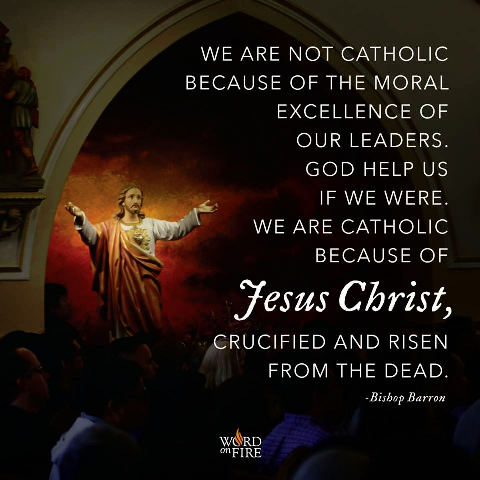 Then I told myself, that the only way to find out is to give it a try. So, I committed myself to living according to the moral teachings of the Catholic Church for a month. I bought a copy of the Catholic Catechism, a summary of the Church’s teachings, and studied it carefully, living my life according to what it taught, even in the cases where I wasn’t sure the Church was right.
Then I told myself, that the only way to find out is to give it a try. So, I committed myself to living according to the moral teachings of the Catholic Church for a month. I bought a copy of the Catholic Catechism, a summary of the Church’s teachings, and studied it carefully, living my life according to what it taught, even in the cases where I wasn’t sure the Church was right.
My goal with the experiment had been to discover the presence of God. However, what caught me by great surprise was that I discovered myself instead; the real me; the authentic Jennifer that had been lost since my childhood. In all the years of my life, I had thought that cynicism, being judgmental, and irritability were just parts of who I was, but I realized that there was a purer, better version of myself buried underneath all that filth. And the filth that I had been living is what the Church would call sins — that I had never before encountered.
From then on, my views about the meaning of life took on a new perspective; my view of life and its purpose totally changed. I found that the rules of the Church, that I had once perceived to be a set of confining laws, were actually rules of how to live a more authentic life and love more deeply. The Catholic Church’s Teachings made great sense to me. They defined the boundaries between what love is and what love is not. It had changed me, my life, and my marriage for the better I finally experienced real love.
In following the teachings about contraception to my great surprise, Joe and I discovered that the Church had incredibly reasonable defenses of its points. We looked at each other, and for the first time dared to ask: Are we going to become Catholics?!
Even as Joe and I had discovered the meaning in life that made most sense in the Catholic Church, we were still somehow hesitant. This was because we were not sure whether we were willing to make the needed sacrifices to live the Catholic faith or not.
Eventually, Joe and I decided to sign up for the RCIA formation process at our parish church . . . and, the first statement of faith I had ever made was to my doctors . . . I told them that I would not use contraception, because I was Catholic!
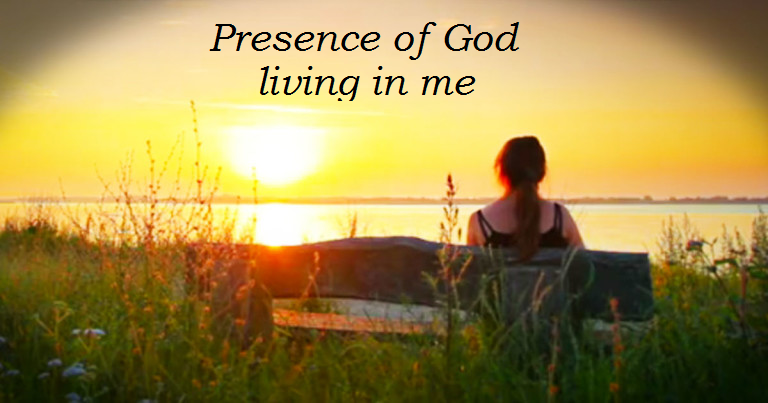
The next Spring, three days before Joe and I would be received into the full communion with the Catholic Church, it was time for my First Confession. As I approached the confessional, I had no hesitation. I had an intellectual understanding that God is the source of goodness and mercy, and that therefore it is important that we take great care to repent when we have done something bad. Moreover, I had already privately confessed all these sins in my head to God. So, telling my sins to the priest, who was simply standing in for Jesus, would be redundant — after all, Jesus had already heard all my sins before; there is nothing new in all these.
However, what happened at my first Confession was another matter. As soon as I began my Confession and heard the words coming from my mouth, everything changed. To hear all of these selfish, cowardly, hateful acts articulated with real words, for another human being to hear was more powerful than I could have ever imagined. Tears began to flow, and, as I continued recounting the unloving things that I had done, I shook and sobbed.
Never could I have imagined the impact it would have on me to hear of my own sins, spoken out loud. Moreover, I had never imagined how much it would impact me to hear the words, spoken by the priest on behalf of God, that I was forgiven of all my sins of my past life, that I have committed. I walked away from the confessional in a daze, and slid into a pew in the silent church. I knew that my life had just changed; never to be the same again.
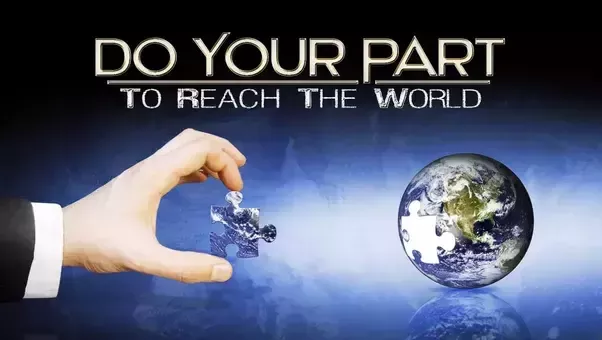
My brothers and sisters in Christ, as I conclude, let us remind ourselves that in today’s Gospel, in sending out His seventy-two disciples to proclaim the Good News of Salvation, Jesus says with sadness, “The harvest is rich, but the labourers are few. Ask the Lord of the harvest to send labourers to his harvest.” You and I are each called to labour in God’s vineyard and draw people closer to Jesus’ Good News of Salvation, and impart the deep and lasting Peace that Jesus wants to give to everyone. And, the most effective way of doing this is, like Jennifer Fulwiler, through the witness of our own lives.
For this, today’s Gospel is reminding you and I to focus more fully and live more wholeheartedly in the Kingdom of God and the Good News of Salvation, and not allow the influences of the materialistic and secular world to tempt us to live a life of: self-glory, self-gratification and pride. This is because, to allow this to happen is to ignore the essential Truth of today’s Gospel of Jesus that is reminding you and I that the greatest joy of our hearts should be the certitude that our “names are written in heaven;” and that when we die, we will receive the gift of eternal happiness.
Adapted from: Jennifer Fulwiler, “Conversion of an Atheist”; www.jenniferfulwiler.com/jen/
Msgr Philip Heng, S.J.
